Palestinian Authority government resigns after international pressure
The US has welcome the move as a ‘positive step’ although it falls short of changes Western and Arab nations have demanded as conditions for the PA to take over Gaza after the war.
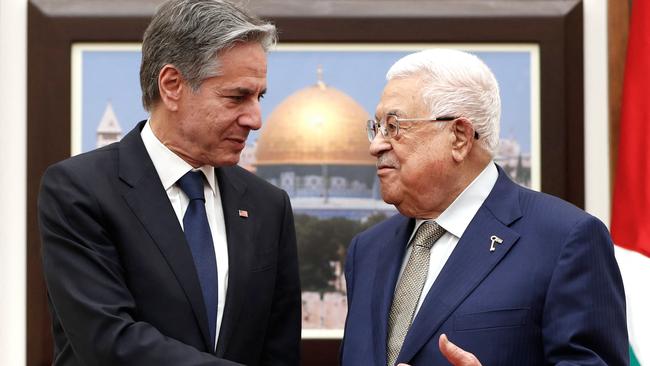
The Palestinian Authority’s government resigned on Monday, an early step toward the overhauls the US and Middle Eastern powers see as a condition for the body to take charge of Gaza after the war.
The move falls short of changes Western and Arab governments have pressured the Palestinian Authority to make, including replacing longtime career politicians with a technocratic team and for Mahmoud Abbas, the authority’s unpopular, 88-year-old president, to step aside and invest a new prime minister with some of the president’s powers.
However the US welcomed the moved, with State Department spokesman Matthew Miller telling reporters it was a “positive and important step toward achieving a reunited Gaza and West Bank under the Palestinian Authority.”
“Ultimately, the leadership of the Palestinian Authority is a question for the Palestinians themselves to decide,” Mr Miller said.
“But we do welcome steps for the PA to reform and revitalise itself.”
American and Arab negotiators are scrambling to broker a ceasefire to avoid more civilian casualties and prevent the conflict from further spreading across the region.
In a sign of escalating tensions, Israel said it had struck aerial defence systems operated by the Lebanese militia Hezbollah 80 km deep into Lebanon after an Israeli drone was downed by a surface-to-air missile there. Two Hezbollah members were killed in the Israeli strike in Lebanon, the group said.
Beyond discussions about an immediate ceasefire, Gaza’s future status is among the most contentious issues facing the international community as Israel’s military offensive in the enclave approaches its fifth month, and is key to ending the conflict.
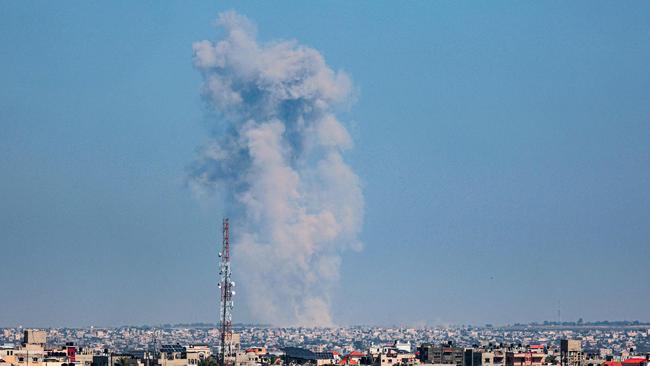
Israel’s government on Monday said that its military presented a plan to increase aid flow and evacuate civilians from the city of Rafah in southern Gaza, as pressure mounts on Israel to share its strategy for protecting the more than one million Palestinians sheltering there as Israel seeks to invade the city. Meanwhile, Israel said that it had discovered a 10 km long tunnel network used by Hamas, which would make it one of the longest tunnels Israel has found in the Gaza Strip.
The US has called for a reformed Palestinian Authority – which currently governs Palestinian population centres in the Israel-occupied West Bank semi-autonomously – to administer Gaza post-war. Israeli Prime Minister Benjamin Netanyahu has resisted any role for the authority in Gaza after the war.
“The next phase and its challenges require new political and governmental arrangements that take into consideration the new reality in Gaza, the national unity talks, and the urgency of reaching internal Palestinian reconciliation based on national interest,” the Palestinian Authority’s prime minister, Mohammad Shtayyeh, said in a speech Monday morning as he tendered his and his government’s resignation.
The proposed PA cabinet resignation was approved by Abbas, who requested that the resigning ministers temporarily continue working until a new government is formed.
The authority’s president hasn’t faced a presidential ballot since he was elected in 2005. Perceived by Palestinians as ineffective, corrupt and too dependent on the goodwill of the U.S. and Israel’s government, Abbas and the authority have seen their popular support plummet in the West Bank and Gaza, according to polls, with around 90% of Palestinians now calling for his resignation. Such unpopularity is a major obstacle to the authority taking over Gaza after a potential Israeli withdrawal.
“This is a half step toward a government change,” said an official from the Palestine Liberation Organization, which represents Palestinians internationally. The official said the proposed changes didn’t involve Abbas.
Another official from the organisation questioned what a future technocratic government for the Palestinian Authority could achieve in rebuilding and governing Gaza without fresh funding and a long-term political perspective for the territory.
Abbas has told Arab and U.S. officials that he is working on forming a new government with Mohammad Mustafa, a former Palestinian economy minister and World Bank executive, as the likely candidate for prime minister, according to senior Arab officials.
Abbas has also tasked a number of Palestinian officials to prepare a plan for the reconstruction of Gaza, which would include establishing a reconstruction authority, operating under the supervision of the World Bank and subject to an international accounting firm.
One plan for post-war Gaza being formulated by five Arab states could see the Islamist Hamas movement being folded into the widely secular PLO, ending the yearslong split between Palestinian factions.

A question mark hanging over the future of Gaza is what role, if any, Hamas would be able to play in a future administration for the enclave, something Israel categorically opposes.
Hamas said its political leader, Ismail Haniyeh, met with Qatari emir Tamim bin Hamad Al Thani in Doha on Monday to discuss routes to end the war in Gaza and the organisation of Palestinian affairs.
The U.S., Israel, Egypt and Qatar have been meeting in recent days in hopes of striking a deal to pause fighting in Gaza and free Israeli hostages, Egyptian officials have said.
Some senior members of Fatah, the ruling party of the Palestinian Authority, are still seeking reconciliation with Hamas, its main rival, which forcefully took power from Fatah in Gaza in 2007.
Fatah is expected to hold talks with Hamas and other Palestinian factions in Moscow later Monday. Officials familiar with the meeting, however, say the Moscow gathering was largely symbolic as Russia lacks a clear road map for a more unified Palestinian front.
Diana Buttu, a former Palestinian peace negotiator, said Shtayyeh – the prime minister – and his cabinet never wielded extensive power given the Palestinian Authority’s lack of sovereignty under Israeli military occupation and Abbas’s efforts to centralise the authority’s limited prerogatives under himself.
“The Palestinian Authority was meant to survive for five years, it was meant to be interim,” Buttu said. “It’s been 30 years. It’s like an old car breaking down. Shtayyeh inherited a position on life support.”
Dow Jones



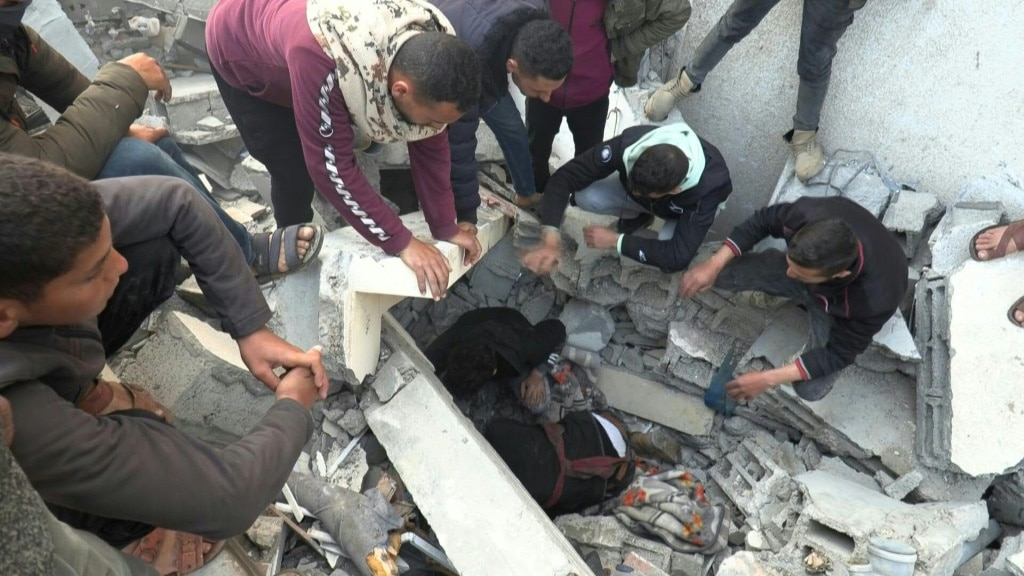
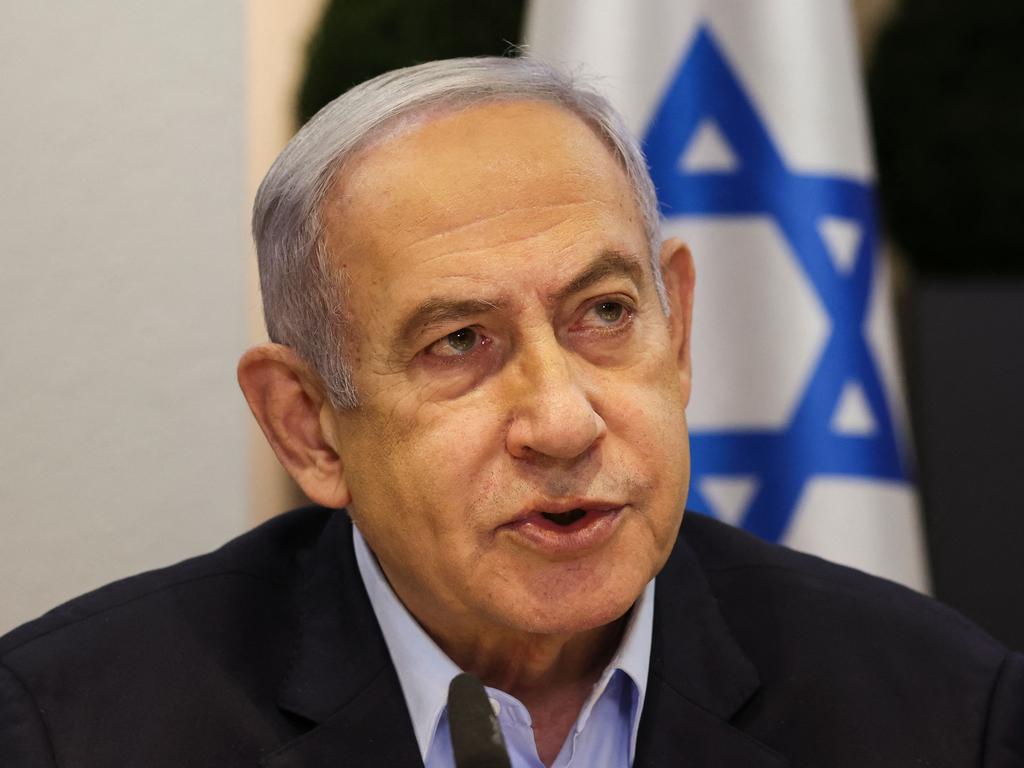
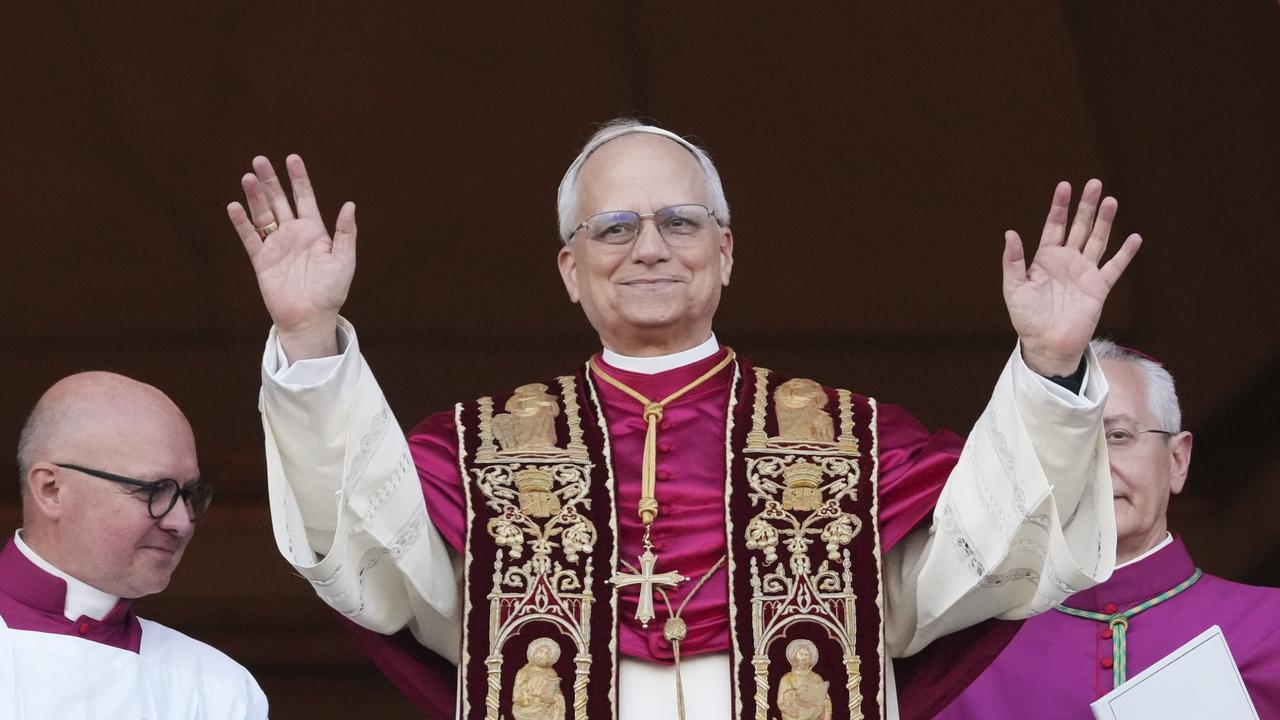

To join the conversation, please log in. Don't have an account? Register
Join the conversation, you are commenting as Logout